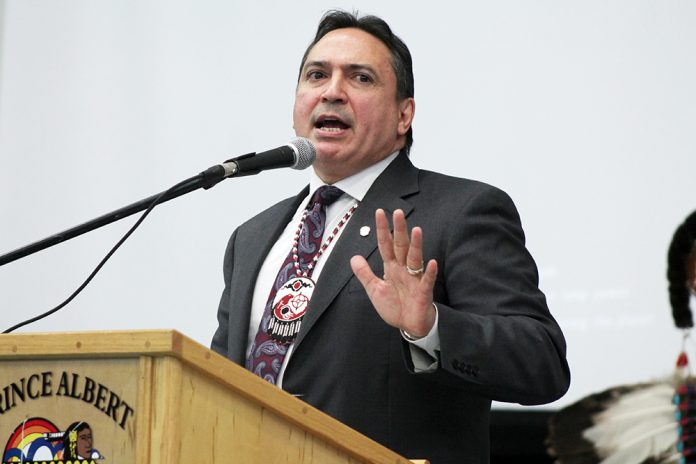
The federal government signed a protocol with the Assembly of First Nations (AFN) Tuesday to establish a new formal structure to support discussions on the legislation passed to reform Indigenous child and family services.
The act is designed will give Indigenous peoples jurisdiction over child and family serves so they can decide what is best for their children, families and communities. Critics have called for more to be done, as they have seen little movement since the legislation was passed in 2019.
The protocol signed Tuesday includes:
– a commitment to regular bilateral meetings and the co-development of a schedule and agenda,
– support for the development of national distinctions-based policy through the establishment of a working group in relation to implementing the new legislation for First Nations,
– the development and creation of tools and mechanisms at the federal level to support the implementation of the act and
– the establishment of a joint fiscal table to explore and identify fiscal issues relevant to First nations implementation of the legislation.
The discussions, the federal government said, would work in coordination with existing First Nations child and family services discussions, including the national advisory committee on First Nations Child and Family Services Reform and the consultation committee on child welfare.
The protocol will also not interfere with rights holders not wishing to be represented by the AFN.
“It recognizes that individual First Nations governments have the autonomy to enter into arrangements or agreements, or to take other implementation steps according to their own priorities and will not impose a structure on all Nations or Inuit and Métis groups,” the federal government said.
“The Protocol will, however, help guide discussions surrounding the implementation of the Act to ensure that they continue in a spirit of co-development.”
According to Census data, Indigenous Children make up of 77 per cent of all children between the ages of 0 and 14 across Canada but account for 52.2 per cent of children in foster care in private homes.
Bill C-92, which would allow Indigenous communities to take jurisdiction over child welfare, was introduced in February of 2019. It established principles such as the best interests of the child, cultural continuity and substantive equality to help guide the provision of Indigenous child and family services. It came into force on January 1 of this year.
“This protocol will ensure that Bill C-92, An Act respecting First Nations, Inuit and Métis children, youth and families, is fully implemented and adheres to a First Nations distinctions based approach that formally acknowledges First Nations Inherent Rights, and best knowledge when it comes to the well-being of our children,” AFN Chief Perry Bellegarde said in a statement.
“First Nations children deserve to grow up in a home that is full of love, culturally relevant, and has the resources to ensure success in life.”
“Just as the Act was co-developed with partners, the signing of this Protocol with the Assembly of First Nations will help ensure that discussions surrounding its implementation happen in a way that works for First Nations, and the children of their community,” Indigenous Services Minister Marc Miller said.
“By formalizing discussions on the Act’s implementation, we are working together to reduce the number of Indigenous children in care.”

